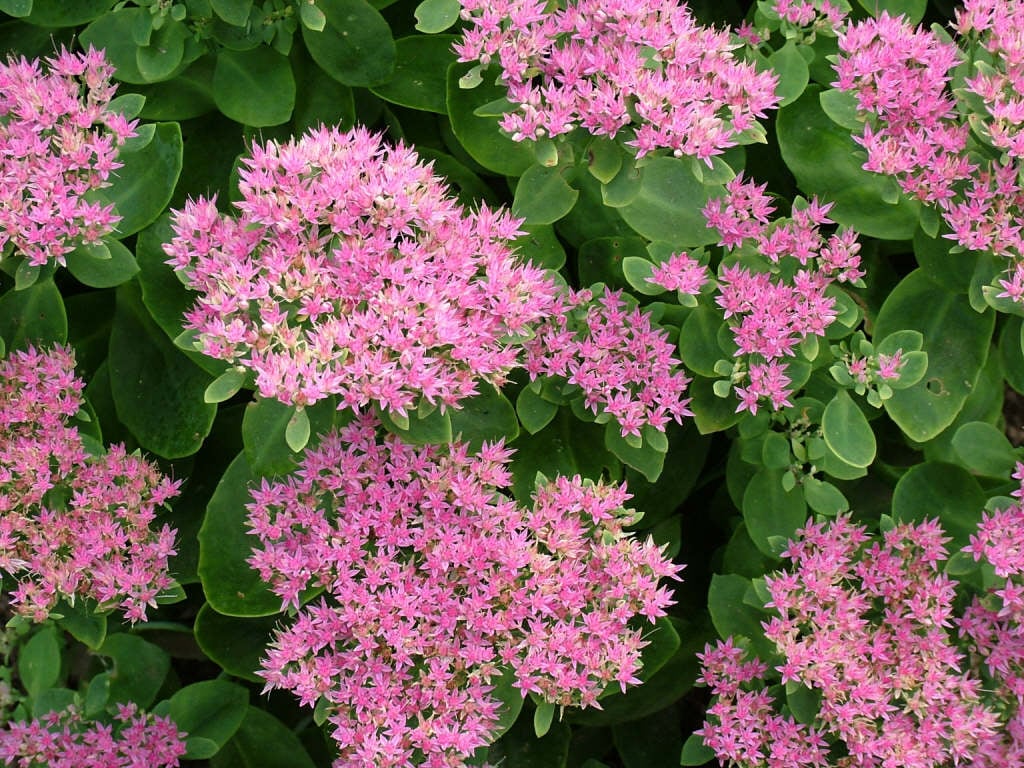Hylotelephium spectabile

ice plant
An herbaceous perennial to 45cm, with thick erect stems bearing shallowly scalloped, broadly elliptic, grey-green leaves and starry pink flowers in flat terminal clusters to 15cm across in late summer
Synonyms
Anacampseros spectabileSedum spectabile
Size
Ultimate height
0.1–0.5 metresTime to ultimate height
2–5 yearsUltimate spread
0.1–0.5 metresGrowing conditions
Moisture
Well–drainedpH
Alkaline, NeutralColour & scent
| Stem | Flower | Foliage | Fruit | |
| Spring | Green Grey Silver | |||
|---|---|---|---|---|
| Summer | Pink | Green Grey Silver | ||
| Autumn | Green Grey Silver | |||
| Winter | Green Grey Silver |
Position
- Full sun
Aspect
South–facing or East–facing
Exposure
Exposed Hardiness
H7Botanical details
- Family
- Crassulaceae
- Native to GB / Ireland
- No
- Foliage
- Deciduous
- Habit
- Clump forming
- Genus
Hylotelephium are succulent perennials with heads of small star-shaped flowers in summer to autumn. They are sometimes included within the genus Sedum
- Name status
Correct
- Plant range
- E China, Korea
How to grow
Cultivation
Grow in moderately fertile, well-drained, neutral to slightly alkaline soil in full sun. A drought-tolerant plant, attractive to wildlife
Propagation
Propagate by division in spring. Propagate by softwood cuttings of non-flowering shoots in early summer
Suggested planting locations and garden types
- Gravel garden
- Patio and container plants
- City and courtyard gardens
- Coastal
- Cottage and informal garden
- Rock garden
- Wildlife gardens
- Low Maintenance
- Banks and slopes
- Flower borders and beds
Pruning
Cut back after flowering to maintain shape or leave seedheads overwinter
Pests
Generally pest-free
Diseases
May be subject to fungal and bacterial crown rot and roots rots
Love gardening
Sign up to receive regular gardening tips, inspiration, offers and more
View our Privacy Policy
Get involved
The Royal Horticultural Society is the UK’s leading gardening charity. We aim to enrich everyone’s life through plants, and make the UK a greener and more beautiful place.

